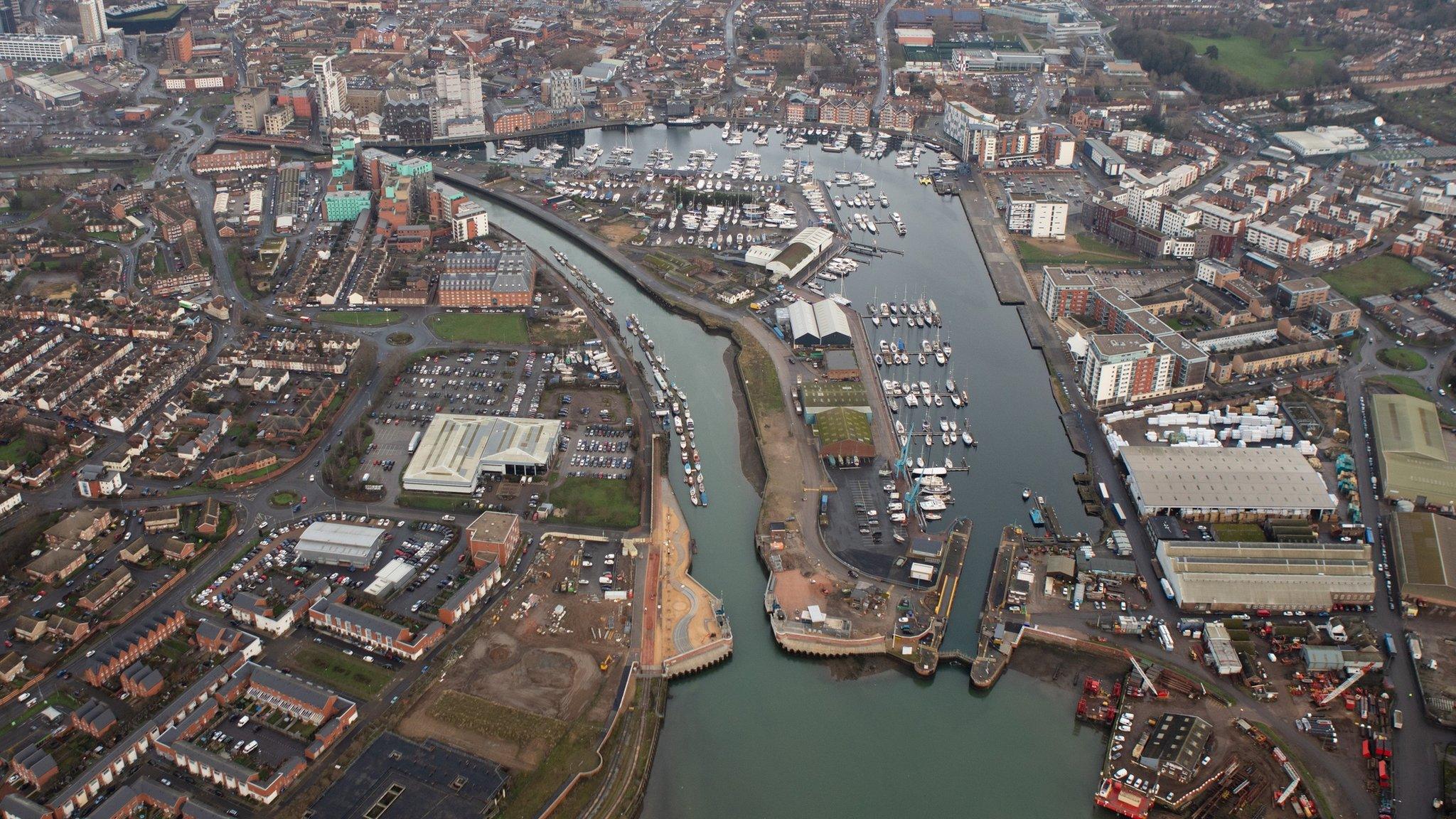East coast erosion: Some people will be advised to move
- Published

Alan Lovell, chair of the Environment Agency, said climate change was the greatest challenge facing us all
Some people "will be advised to move" due to coastal erosion, the chair of the Environment Agency, external said during a visit to the east coast.
Alan Lovell said the agency "hopes to be able to deal with" storm surges and floods coming in from the sea.
But he added there is "really nothing we can do" about coastal erosion.
He was speaking during a visit to the £67m Ipswich Tidal Barrier, which was opened in 2019 and is designed to keep homes safe during storm tidal surges.
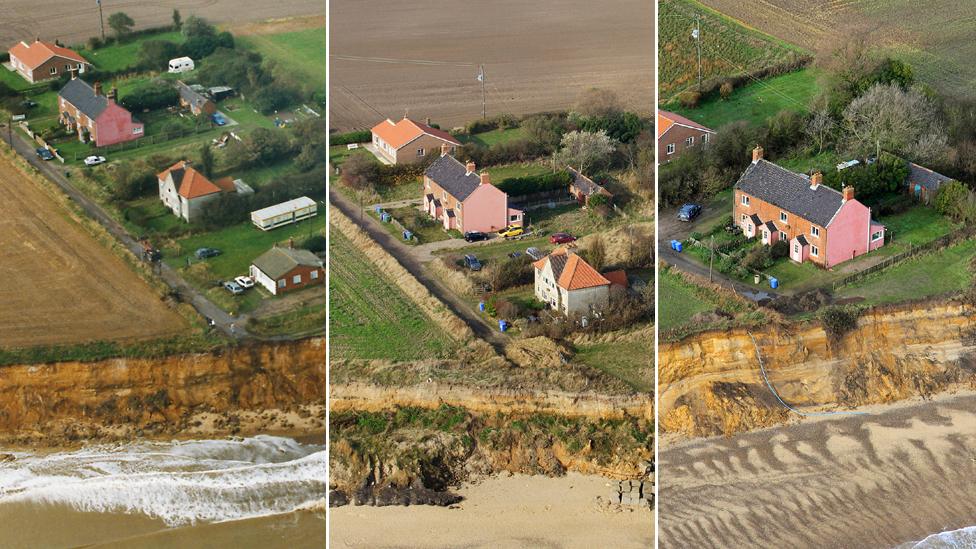
Anna Jones' pink cottage at Easton Bavents can be seen on the left in 1998, with two buildings between it and the sea; in the middle in 2009; and on the right in December 2019, when it was on the cliff edge
Demolition began on four coastal properties in Pakefield, south of Lowestoft, in February, after they were deemed unsafe by East Suffolk Council.
Anna Jones was forced to have her cliff-top cottage in Easton Bavents, just north of Southwold, demolished after a storm in December left it 30ft (9m) from the edge.
Mr Lovell, who was confirmed as chair in July, external, described climate change as a "great risk facing us all".
As a result, flooding would become "more extreme and more frequent".
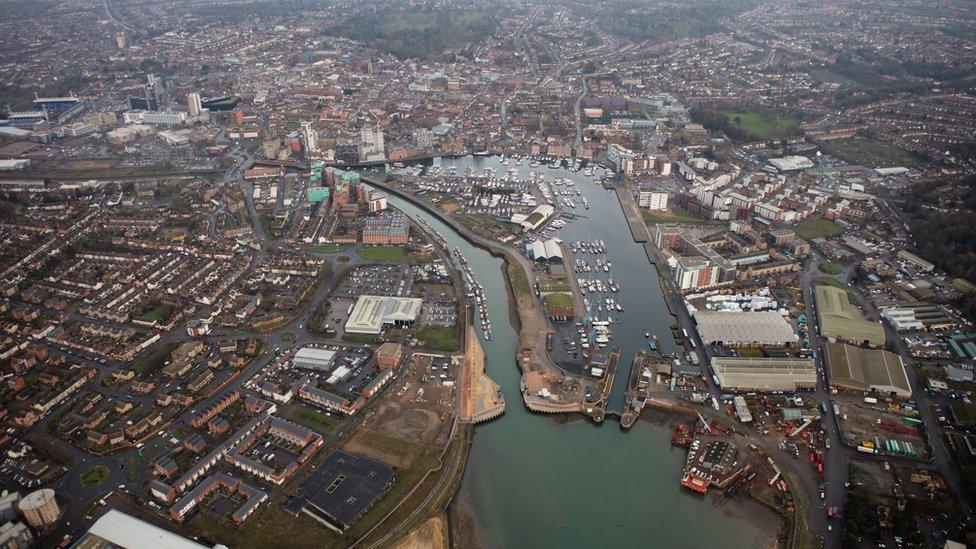
The flood barrier, at the southern end of the New Cut (centre of picture), is designed to protect Ipswich from tidal surges for the next 100 years
"We can do our best [to protect from flooding] and we have done a lot all the way up the east coast because of a clear risk of surges from the North Sea," he said.
"Coastal erosion is different because there's really nothing we can do about that and in the odd places then we will be having to advise people to move, but that shouldn't be the case with flood."
The Ipswich Tidal Barrier offers protection to 1,600 homes and 400 businesses.
It has a 200-tonne rotating barrier which can be raised in minutes, helping to keep the town safe from tidal surges during storms.

Find BBC News: East of England on Facebook, external, Instagram, external and Twitter, external. If you have a story suggestion email eastofenglandnews@bbc.co.uk, external
Related topics
- Published27 February 2020
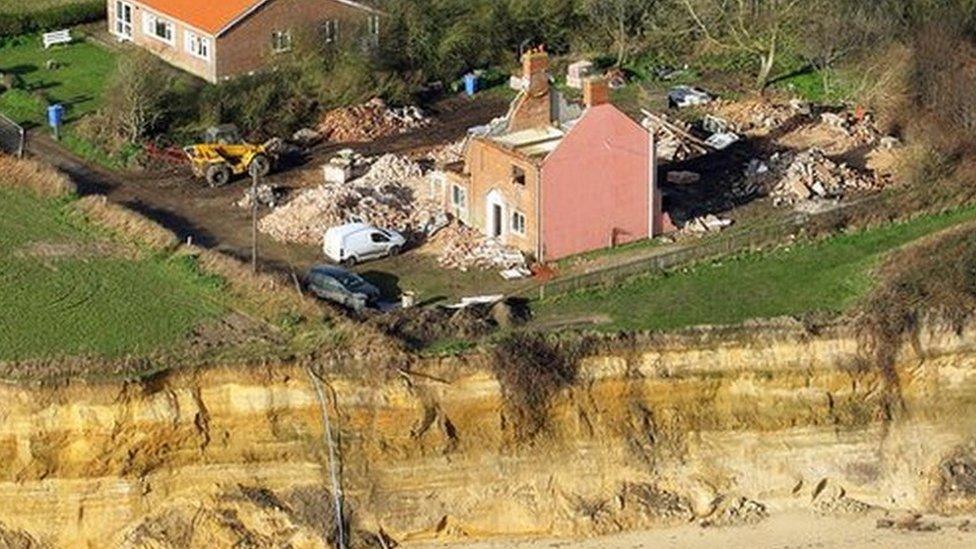
- Published22 February 2022
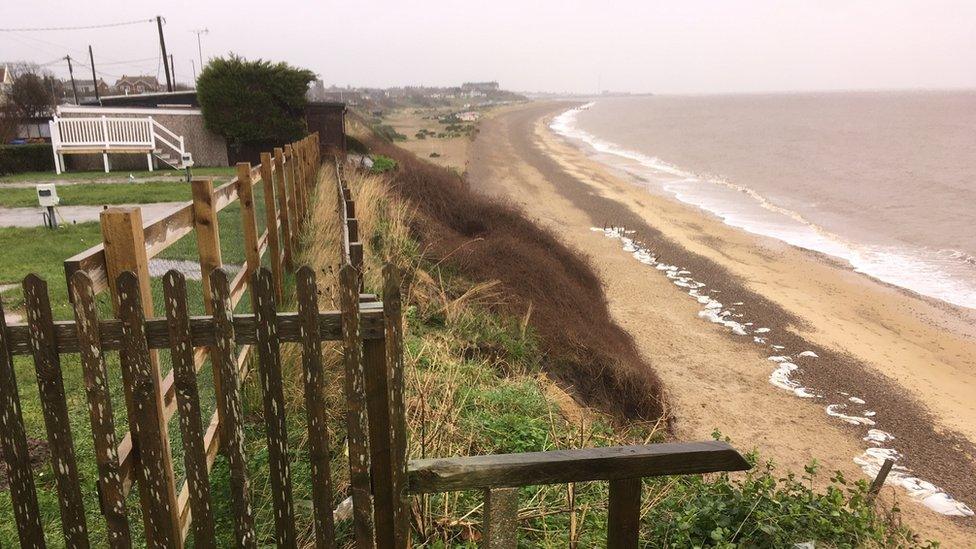
- Published16 February 2022
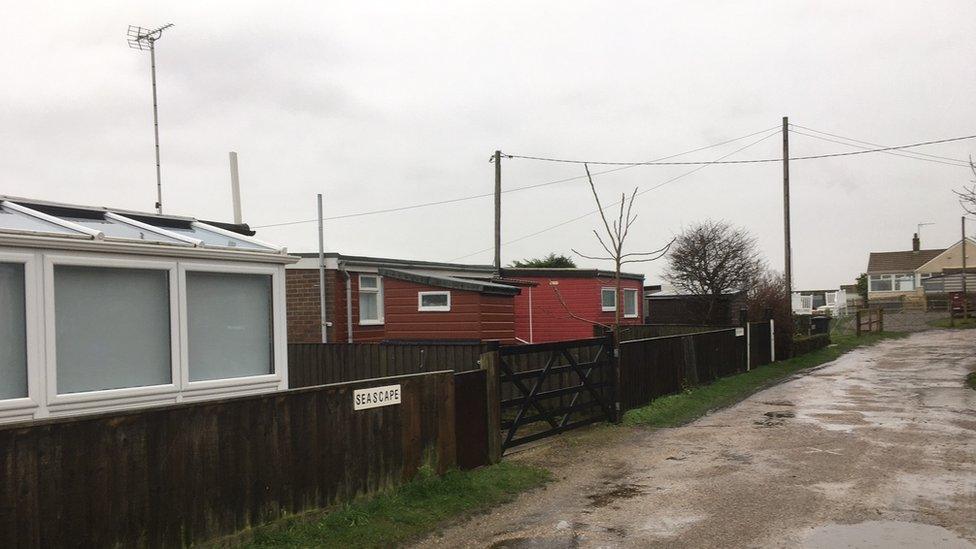
- Published23 October 2021
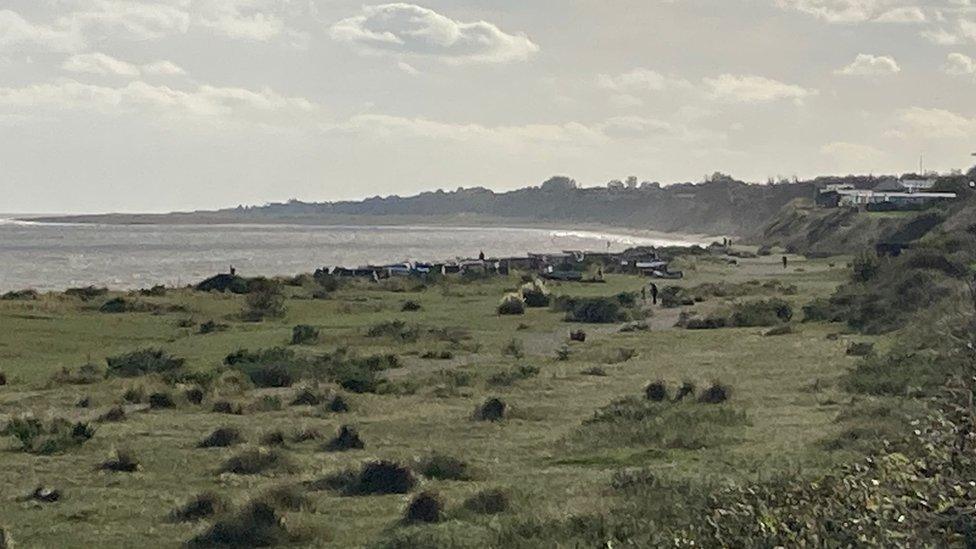
- Published8 February 2019
